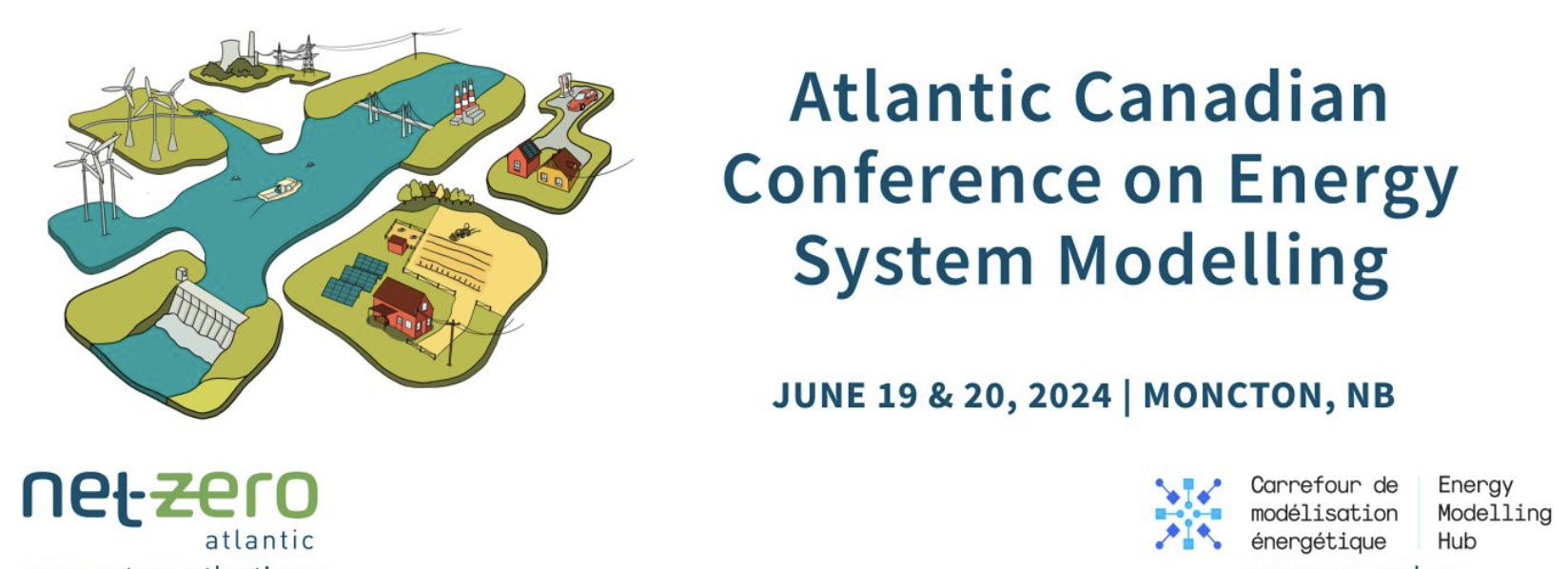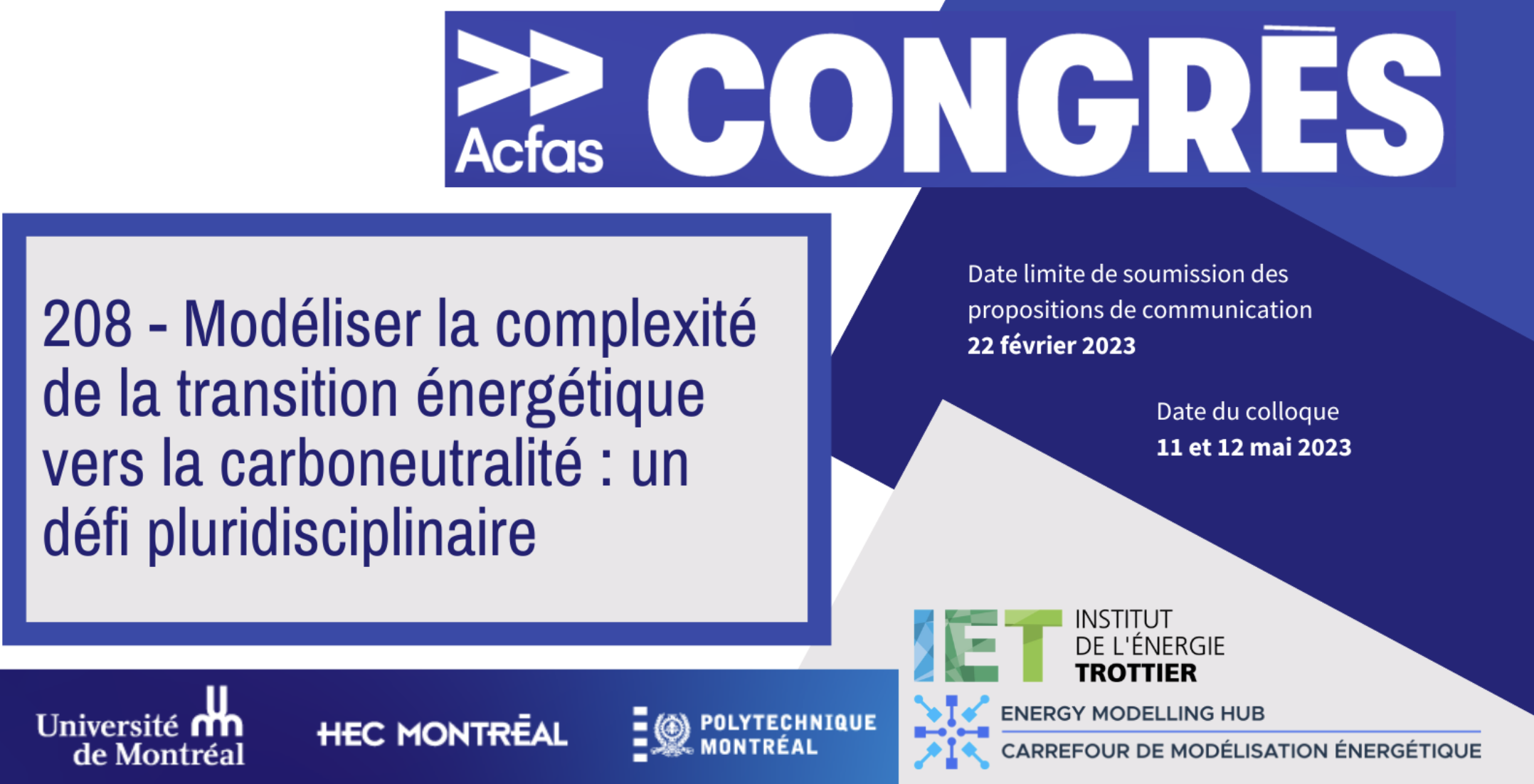Ticket registration is free.
Register today!
View the presentations and agenda here
Theme
The theme of the event is “Integrating Deep Changes into Future Energy Landscapes: Navigating Atlantic Canada’s Energy Transition,” which underscores our commitment to exploring the dynamic and rapidly evolving energy environment.
Join us for engaging discussions about the future of Atlantic Canada’s energy system.
Conference Overview
The event will consist of a day and a half of insightful discussions and presentations, offering regional, national, and international perspectives. Our panels will explain how energy models can help guide us through deep changes to the energy landscapes, highlighting the importance of agile and informed policy-making.
This conference is more than a platform for sharing ideas, too. It is an opportunity to forge connections and align regional strategies with broader national energy system modelling efforts.
Whether you are seeking to grasp the nuances of Atlantic Canada’s energy transition or contribute to shaping its future, this conference is your gateway to the forefront of energy system innovation and collaborative policy development.
Session 1/Topic 1 – The Future Unveiled: Modelling Deep Changes in Energy Systems
This panel sets the stage for discussing the profound transformations underway in energy systems. It focuses on how energy modelling is uncovering new insights in technology adoption, demographic shifts, and grid resilience, underscoring the need for policymakers to understand these deep changes.
Themes: Technology Adoption, Demographic Shifts, Grid Resilience, Policy Implications
Session 2/Topic 2 – Scenarios of Uncertainty: Navigating Through Emerging Energy Trends
Dedicated to exploring future scenarios, this panel discusses the challenges and uncertainties in predicting energy trends. It highlights the role of energy models in illuminating these paths and the importance of adaptable and responsive policy frameworks in an evolving energy landscape.
Themes: Impact of Demographic Changes, Integration of Non-Power Sectors, Distributed Energy Resources (DERs) in Atlantic Canada, Distributed Energy Resources (DERs) in Atlantic Canada
Session 3/Topic 3 – Resilient Grids for Dynamic Future: Addressing Variable and Stability
This panel delves into the technical aspects of ensuring grid resilience amid deep changes, particularly with the integration of variable renewables. It will discuss the importance of short-timescale modelling and how these insights can guide policy decisions for stable energy supply.
Themes: Adoption of New Technologies, Technological Advancements (such as grid modernization and emerging energy technologies), Ensuring Grid Resilience: Short-Timescale Modeling for Stable Power
Session 4/ Topic 4 – Collaborating in Action: Bridging Energy Modelling with Policy Agility
Focusing on the synergy between energy modelling and policymaking, this panel emphasizes the need for collaboration in the face of deep changes. Discussions will center on how government officials can use modelling insights to remain agile and effective in policy formulation and intervention.
Themes: Regulatory Roadmap: Adapting Policies for High Electrification and High Adoption of Variable Renewables, From Winds to Watts: Efficiently Representing Variable Parameters in Energy Models
Session 5/ Topic 5 – Adapting to New Realities: Policy Shifts in the Wake of Technological and Behavioural Changes
This panel will explore how policy needs to adapt to the realities of technological advancements and behavioural changes. It will discuss scenarios like the implications of eliminating a carbon tax and how energy models can inform these significant policy transitions.
Themes: Impact of Demographic Changes, Challenges and Opportunities Presented by Changes in Policy (e.g. life without a carbon tax), Behavioural Change
Session 6/ Topic 6 – From Modelling to Action: Translating Insights into Sustainable Policies
The final panel will bridge the gap between modelling and actionable strategies. It will focus on how insights from energy models can be translated into sustainable and agile policies, ensuring effective responses to the deep changes impacting the energy sector.
Themes: Decarbonization Solutions, Affordable Strategies for Atlantic Canada



